OPS & TRAINING
ALL HANDS ON DECK DURING COVID-19
05 May 2020
Navy men and women continue to protect Singapore during the COVID-19 outbreak. Here are snapshots of their life at sea, in base and helping the community.
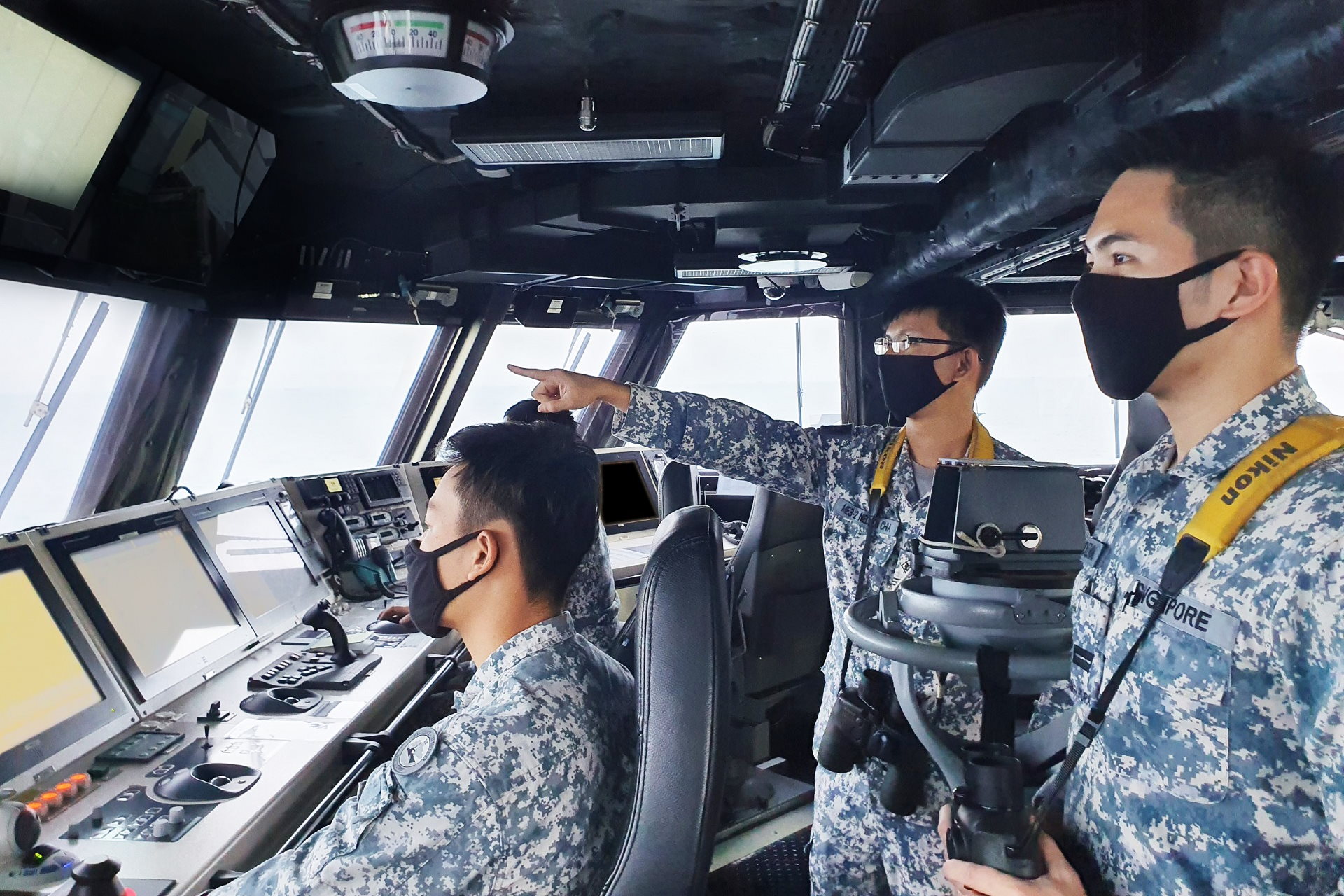
Navy Day celebrations on 5 May this year are a little different: no parade, no coming together to march in contingents, no shared meals after.
They may not be able to physically gather, but Republic of Singapore Navy (RSN) personnel all over the country remain connected by a shared mission: to keep Singapore's sea lines of communication open and safe, and to fight the COVID-19 (Coronavirus Disease 2019) pandemic.
See how servicemen and women in the RSN's Critical Operations Units have been playing their part to protect Singapore.
Always keeping watch at sea
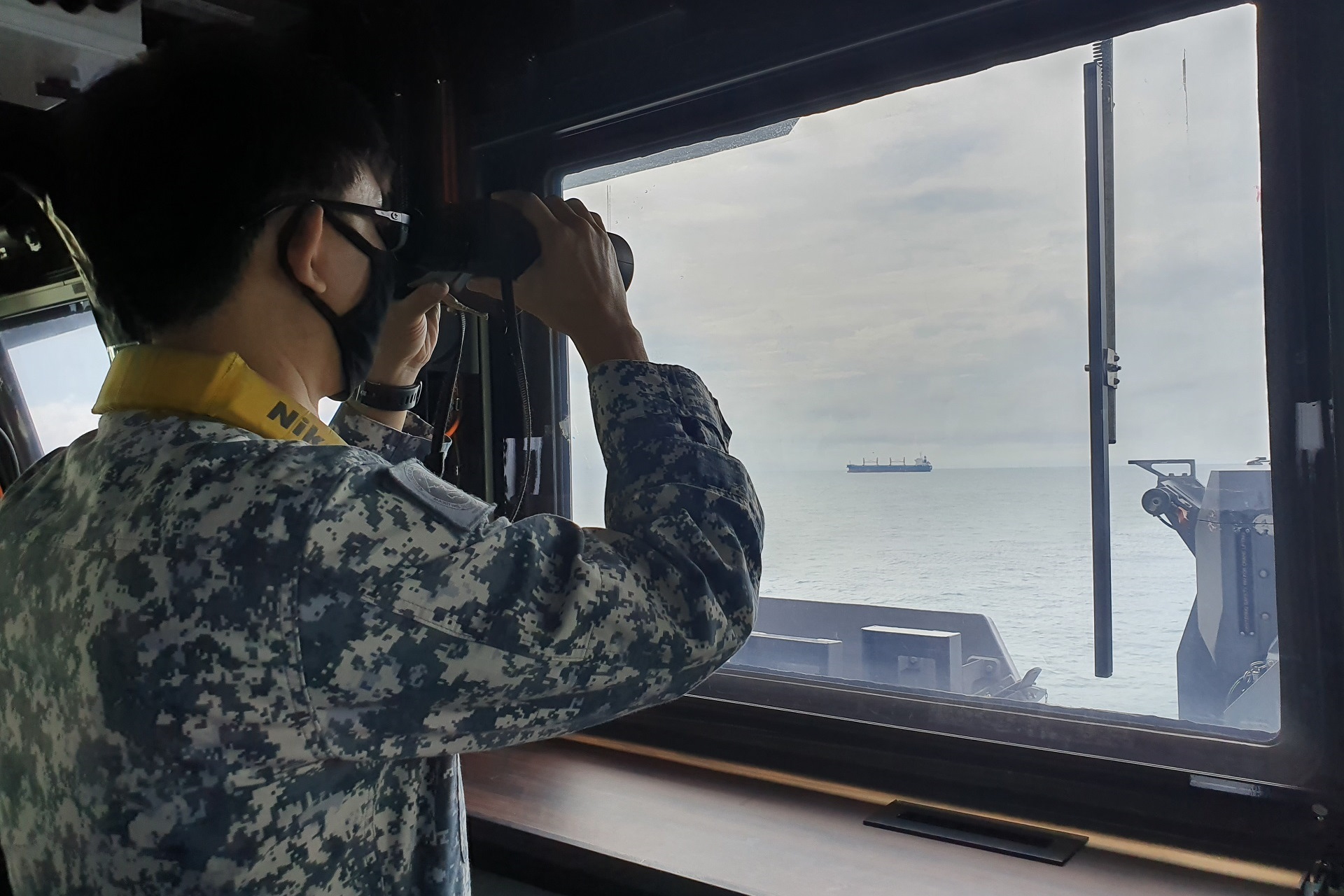
Military Expert (ME) 3 Nelson Chia, 40, Coxswain of Littoral Mission Vessel RSS Justice, scans the sea and tracks a passing merchant vessel during a patrol. Like other Critical Operations Units, the crew has to be away from home and isolated in base for the duration of their duties.
"Our commitment to be mission ready during these challenging times inevitably require sacrifices to be made. This comes in the form of a longer span of time away from our family members and our loved ones," he explained.
Nonetheless, the crew is taking the challenges in their stride. "Ship morale remains high, as we understand the need to maintain operational readiness and the purpose behind these isolation measures."
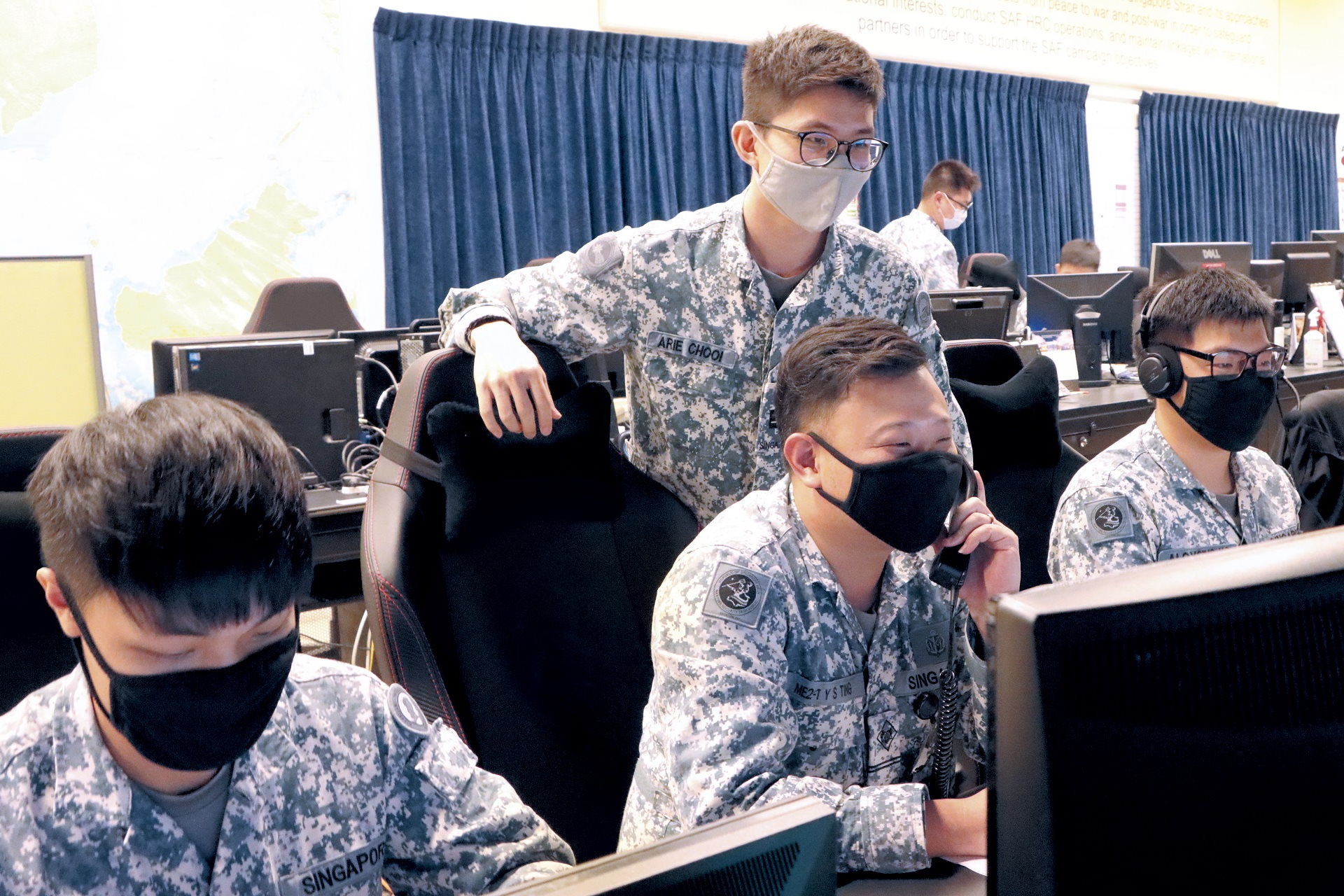
At the Maritime Security Task Force Operations Centre in the Changi Command and Control Centre, duty personnel keep a close watch over the waters of the Singapore Strait.
Their job is look out for unusual activities and unauthorised vessels plying the region's waters. Numerous illegal maritime activities remain a concern during the COVID-19 pandemic: illegal immigrants attempting to enter Singapore, sea robberies and terrorist attacks.
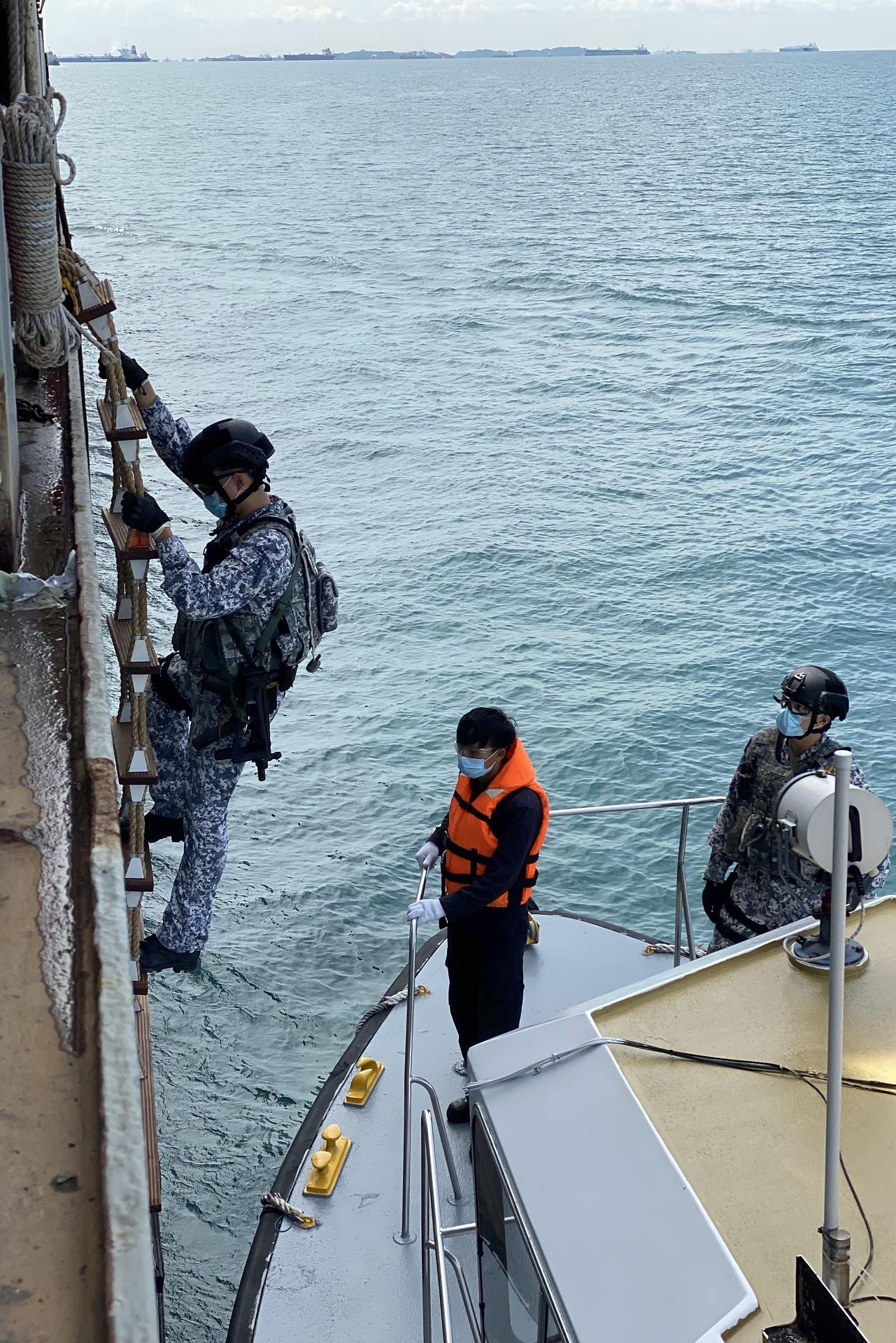
The Accompanying Sea Security Teams (ASSeTs) from 180 Squadron (SQN) carrying out boarding and search operations on merchant vessels. Full-time National Servicemen (NSFs) work alongside seasoned Regulars to carry out checks on the ships, to ensure that they are not harbouring illegal immigrants or dangerous weapons.
Besides staying away from home during their duties, ASSeT members don additional Personal Protective Equipment (PPE) such as masks, eye-protection goggles and latex gloves before boarding. They also maintain a 1m distance within the team, and avoid physical contact with merchant ship crew.
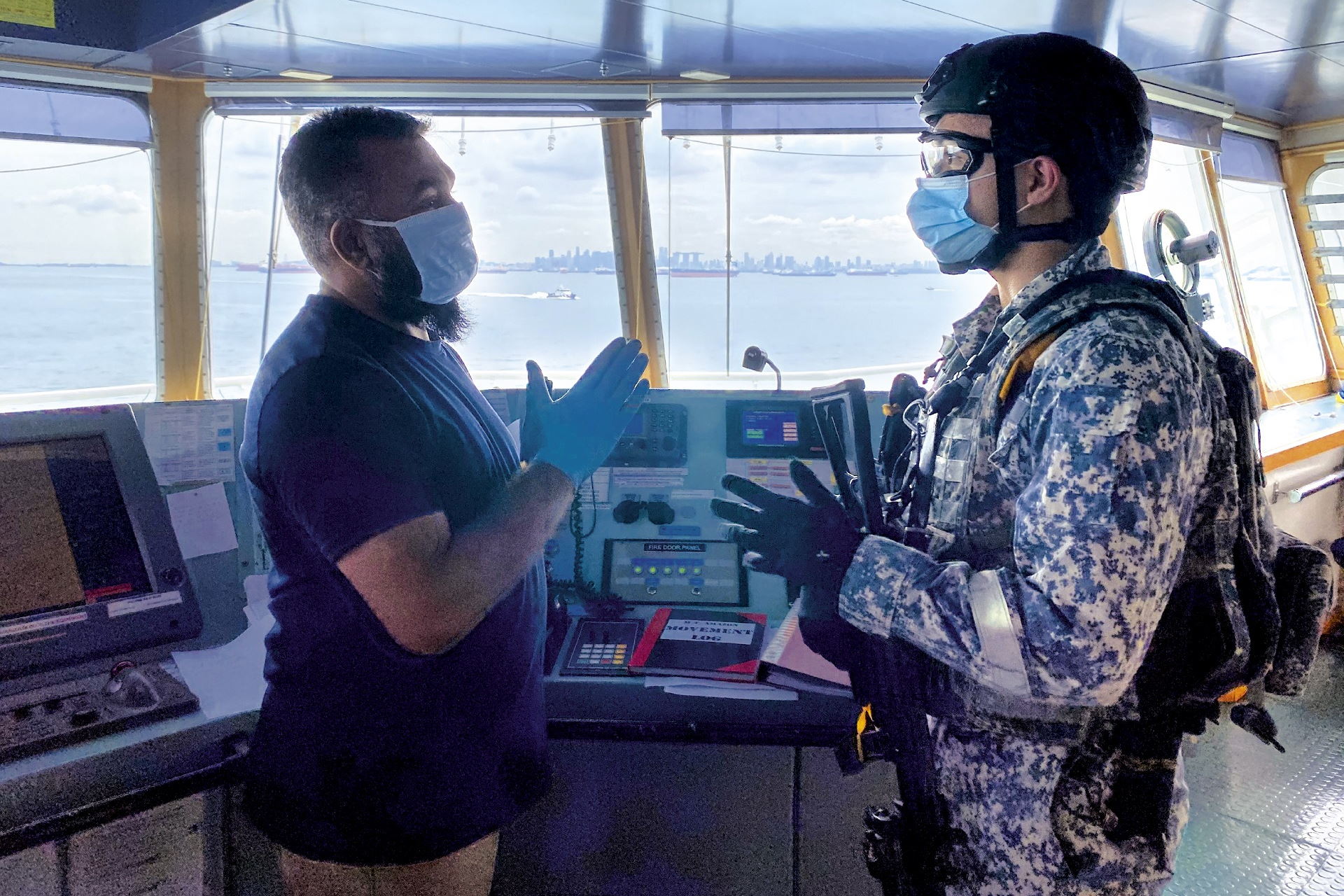
ASSeT Team Leader 2nd Lieutenant Jeremiah Tay (right) interviewing the ship master of a merchant vessel. The 20-year-old NSF will reach his Operationally Ready Date in November this year, but is already thinking about extending his National Service.
He hopes to pass on the skills he learnt in Midshipman Wing to future trainees: "The rigour of (officer cadet training meant that) I was put through challenge after challenge, (which) strengthened my leadership and critical thinking skills.
"Bringing these skills back to my unit in 180 SQN, I was able to influence my men to always practise professionalism when it comes to work."
A strong, stable Base
Back in the naval bases, the squadrons continue to be hard at work. For the RSN's fleet of Formidable-class frigates, the ships and their crew must remain operational and stand ready for any contingencies.
As the crew have to work in close quarters on board ship, they had to be isolated ahead of and for the duration of their duties, to ensure the health and safety of their fellow sailors.
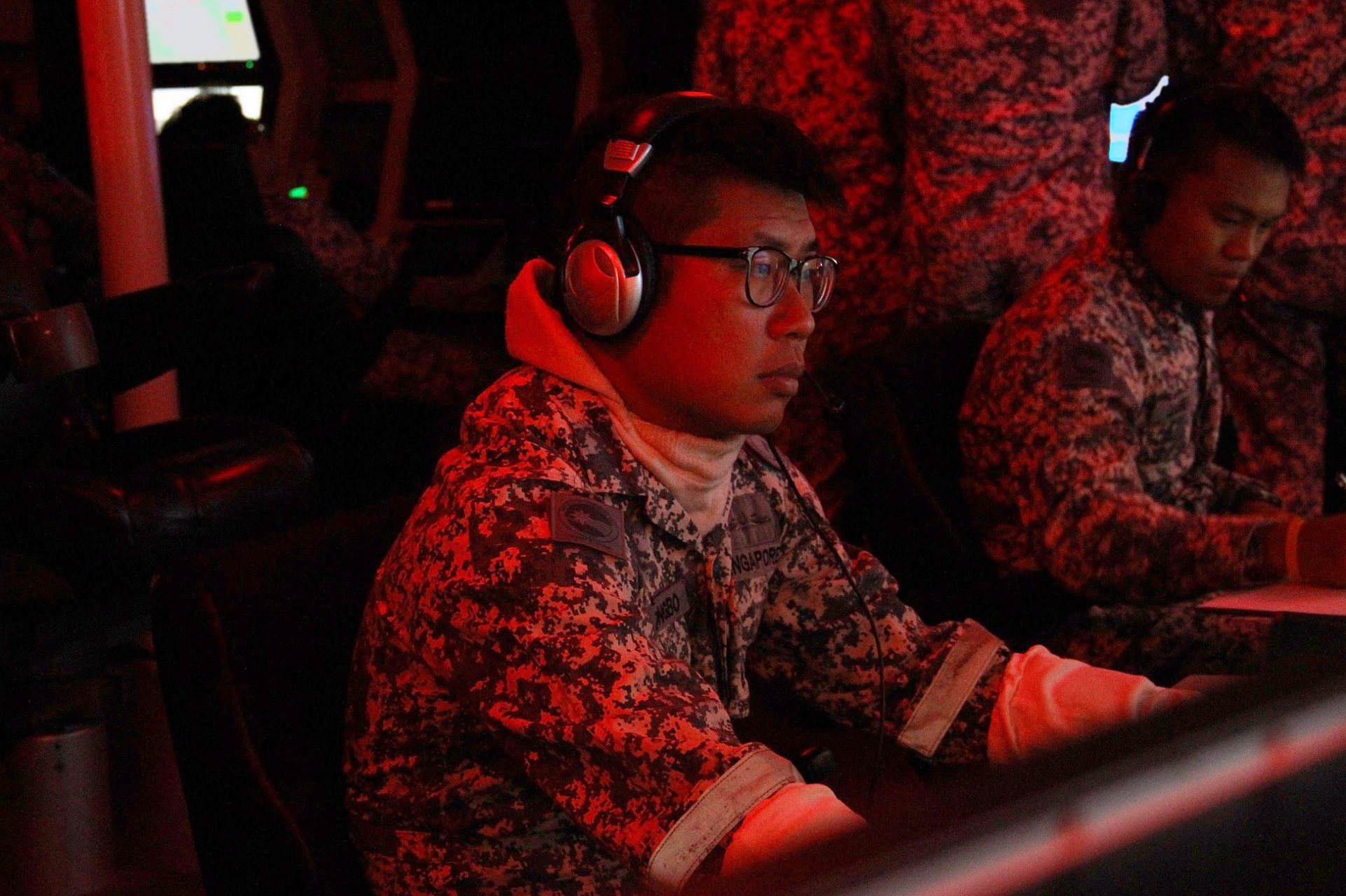
Lieutenant Colonel Oh Zongbo, Commanding Officer of RSS Intrepid, 38, in the frigate's Combat Information Centre during a wargaming exercise.
"On top of continuing with the training rigour, we have to remain healthy and free from COVID-19. Hence, personnel from our Fleet units have been isolated since the beginning of the Circuit Breaker period, to reduce risk of infection and ensure that the critical task of defending Singapore's waters remains robust throughout."
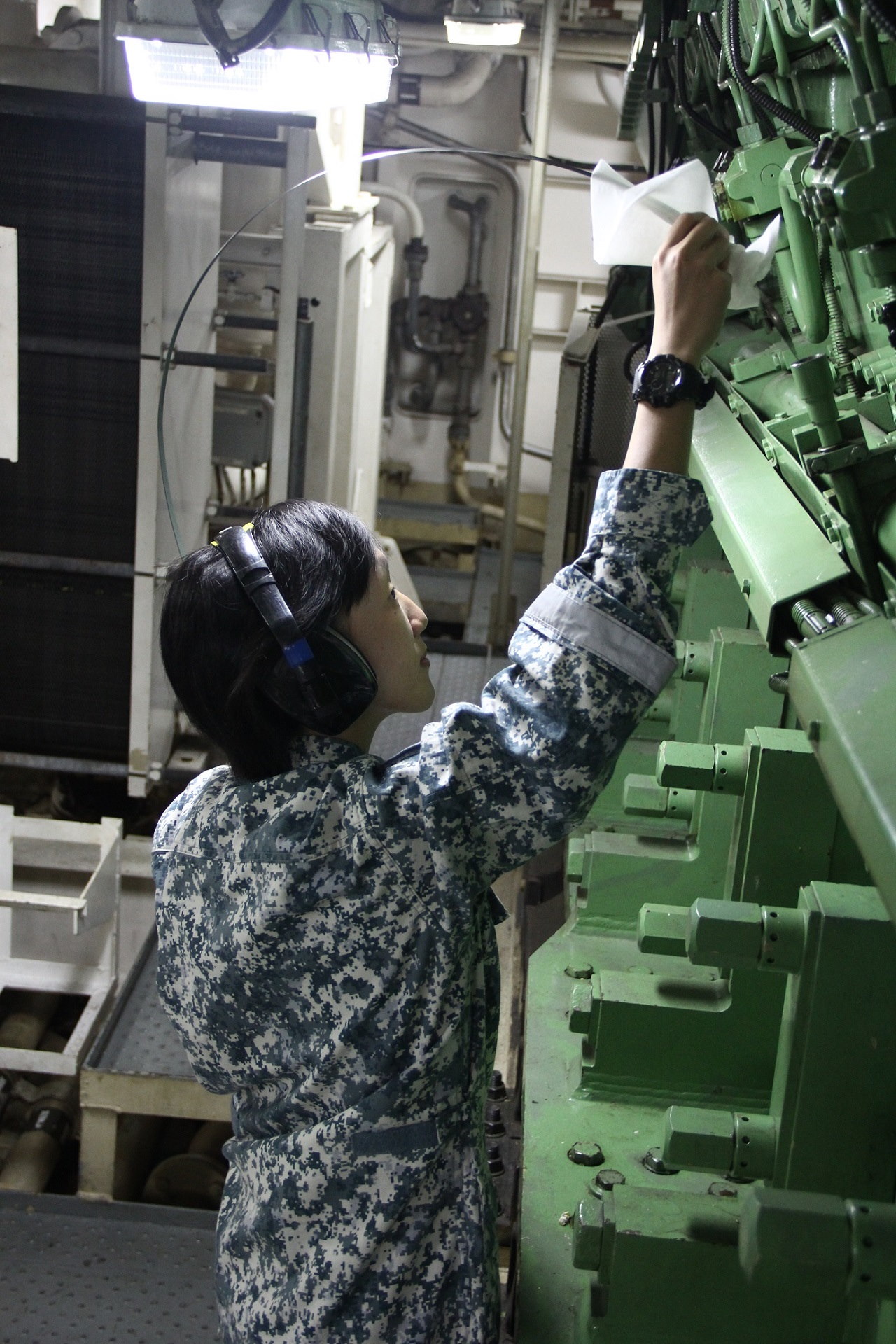
Marine Systems Operator ME1 Oon Shumin carrying out checks in the engine room of RSS Intrepid. The nationwide circuit breaker measures have brought additional challenges to her duties as an engineer.
For instance, delivery of parts has been delayed, leading to the engineering team putting in additional hours to maintain the ship's readiness. Her team has also been helping to conduct checks and maintenance on RSS Intrepid's sister ships, which are currently manned by only essential crew and duty personnel.
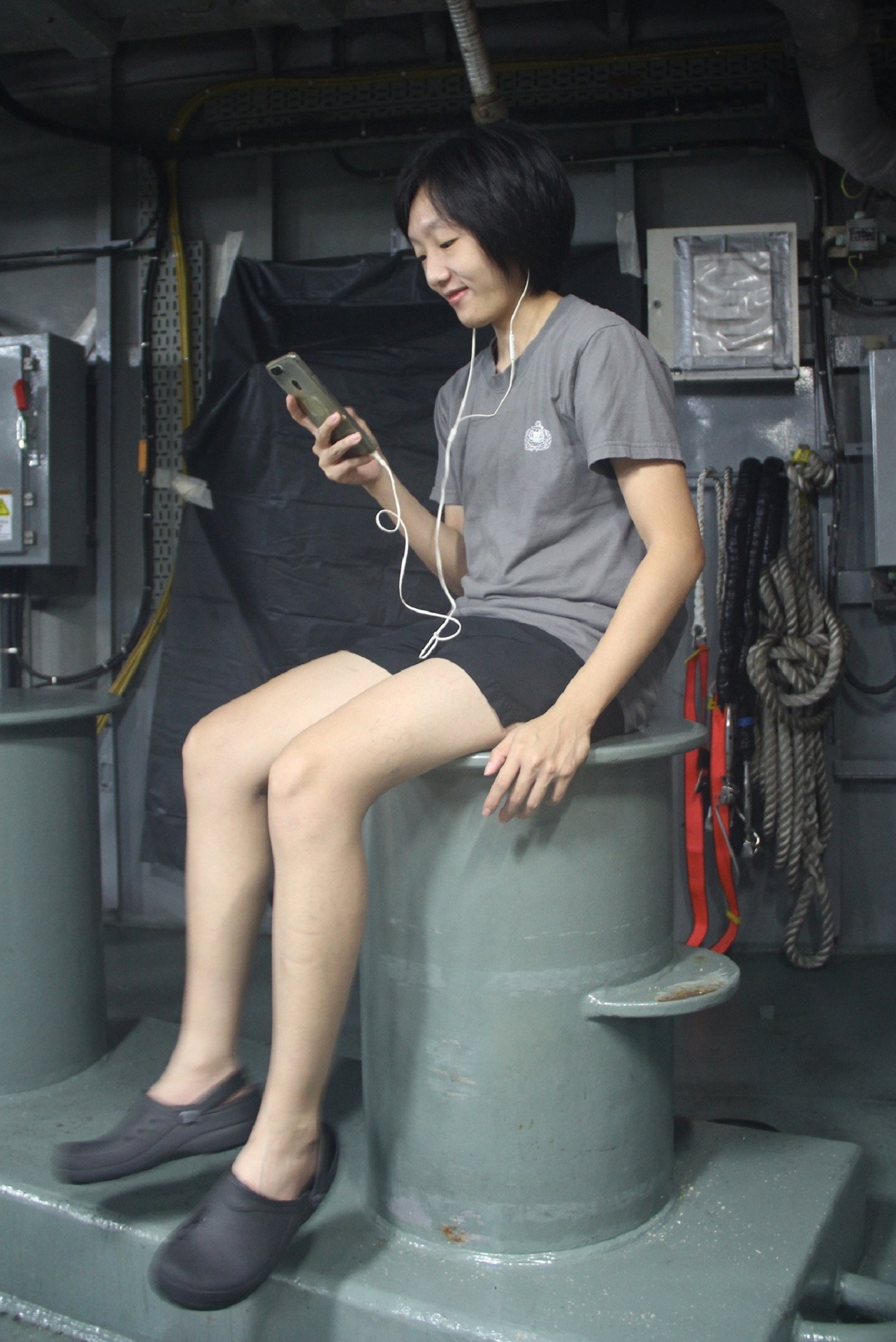
ME1 Oon catching up on rest and updates from home. "The Navy and the ship have taken our welfare into account to make isolation more manageable. This includes setting up pre-approved zones where we can video-conference with our loved ones," said the 32-year-old.
"My family and I miss one another, but they understand the need for me to do this in light of the COVID-19 situation in Singapore. They tell me they are excited and plan to cook up a big meal for me when I am back!"
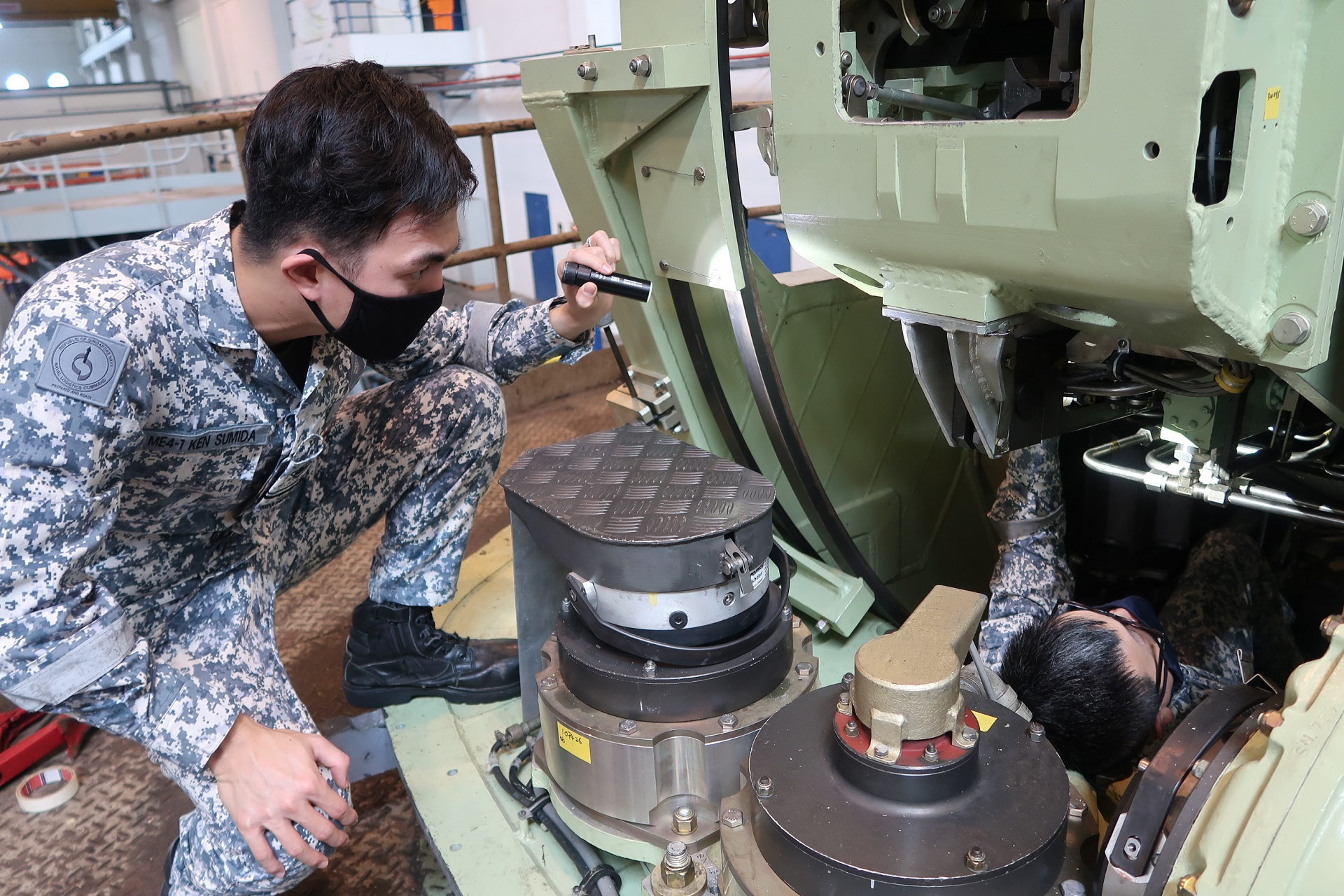
Lead Engineer ME4 Ken Sumida (left) working with a combat technician to inspect a 76mm OTO Melara Gun during maintenance checks. The 28-year-old from Force Readiness Squadron, Naval Logistics Command (NALCOM), has remained isolated at his workplace in Tuas Naval Base since the start of his duties, in addition to two weeks of isolation before operations began.
As their jobs require them to work with external contractors, they must also observe strict safety measures such as wearing a mask at all times, avoiding physical contact with the contractors, and wiping down equipment after maintenance.
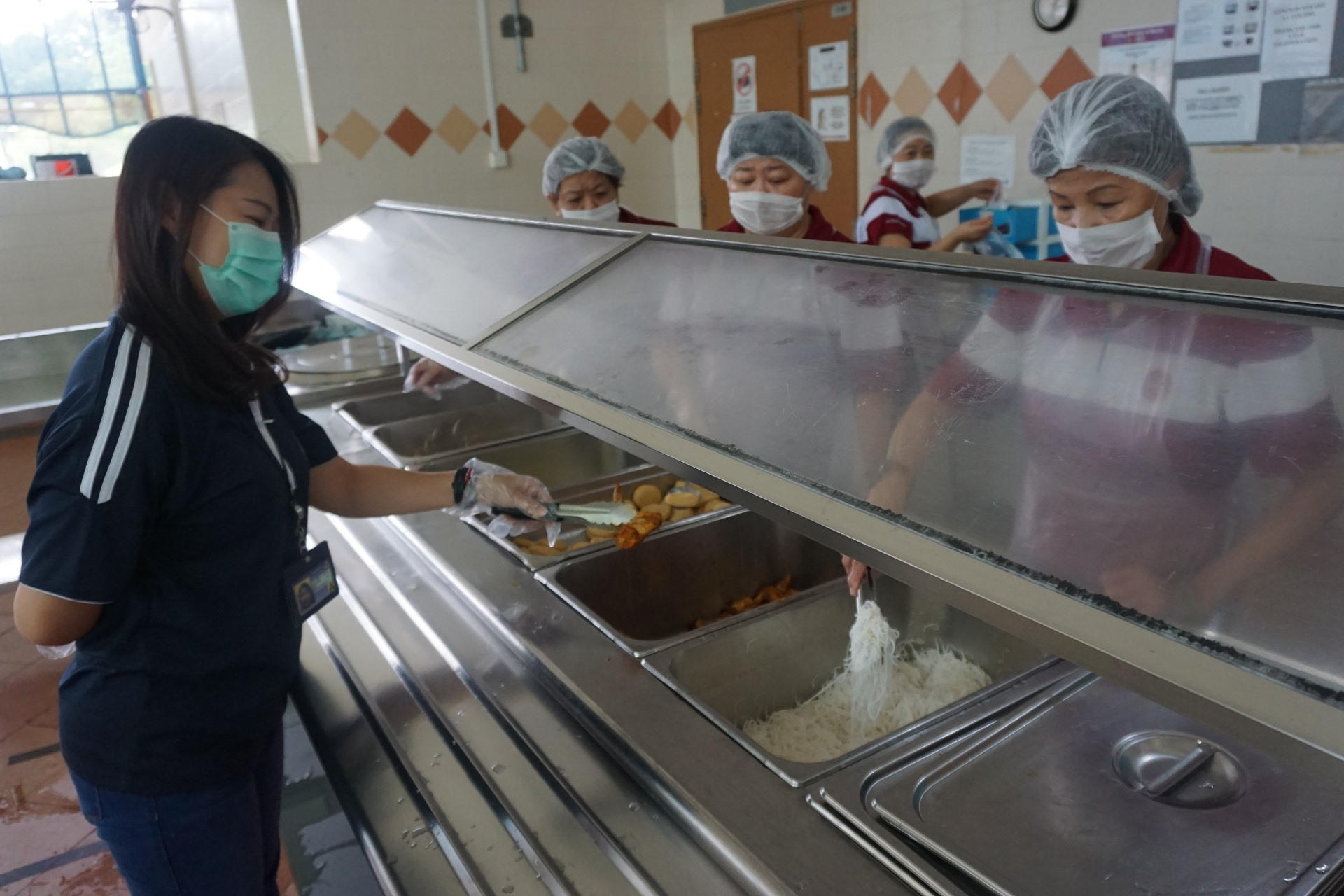
Ms Kelly Kwa, Head of the Ration Section in Force Support Squadron, NALCOM, (left) inspecting rations in the cookhouse ahead of the day's lunch.
Since the introduction of COVID-19 safe distancing measures, the 48-year-old has had her hands full overseeing the implementation of safe distancing measures such as staggered mealtimes, and rearranging dining tables to ensure proper distancing. During the Circuit Breaker period, she also manages the delivery of rations to the squadrons in isolation.
Keeping training standards high
At the schoolhouses, training is still ongoing. They must observe strict hygiene and safety distancing measures while maintaining high standards of training. Training also continues to be conducted in simulation centres to train the next generation and maintain the operational readiness of the ship crew.
In the Naval Diving Unit's Frogman School, where the Dive Leader Course (DLC) is underway, safety distances are clearly marked out in all training areas such as classrooms and dive pools. These areas are frequently wiped down to keep them sanitary. Meals and shower timings are also staggered to reduce crowding.
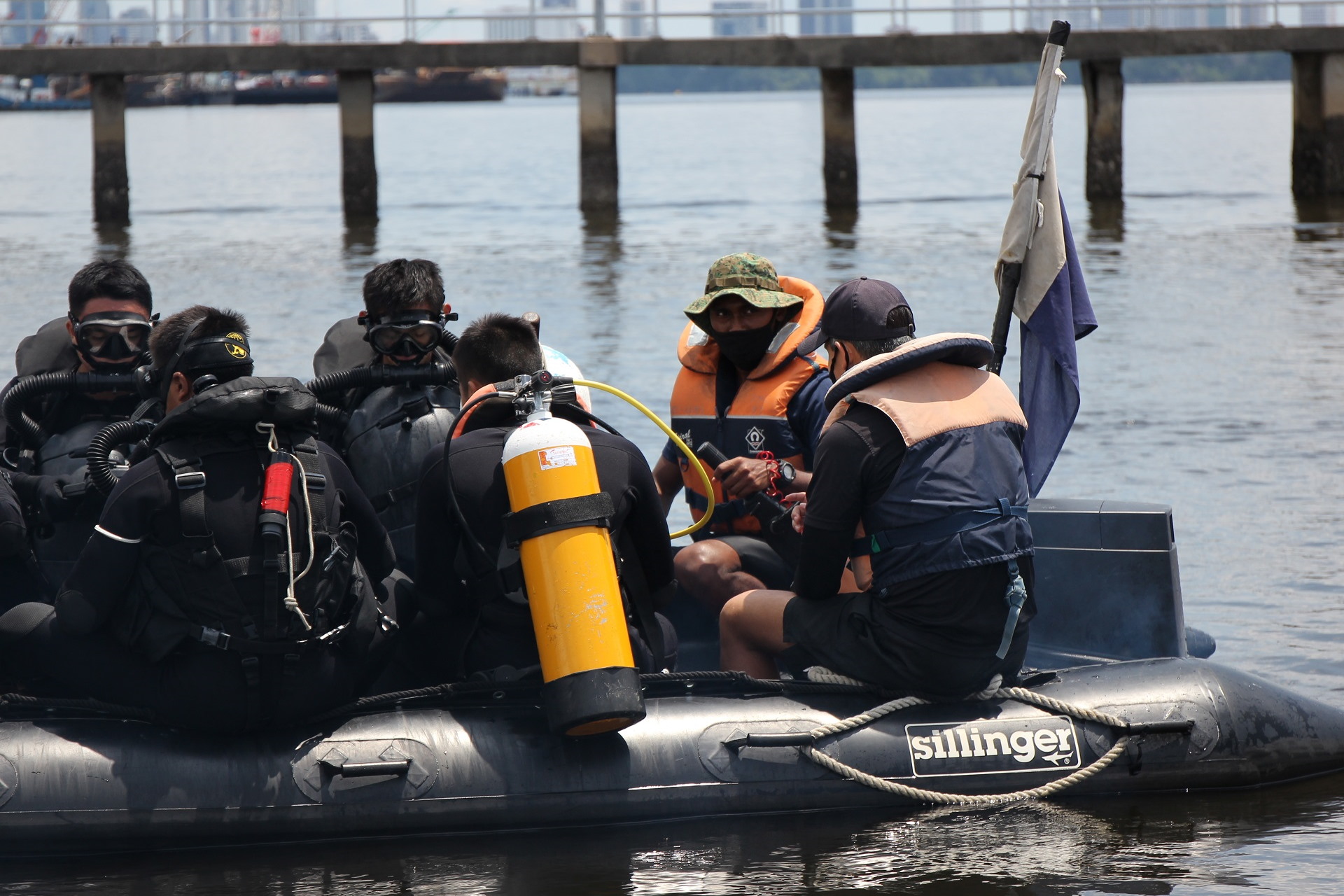
Even though the safety measures cause some inconvenience to training, 3rd Sergeant Julian Segajesan Banie (wearing jungle cap) believes it is important that the DLC continues.
"Going through the course during this time is crucial; it is important for us to become qualified dive leaders to lead our batchmates, so that we can immediately regroup and lead the team in operational taskings," said the 23-year-old NSF.
"Despite the evolving COVID-19 situation, we are still able to gain the needed skills to take on our respective roles confidently in our operational unit."
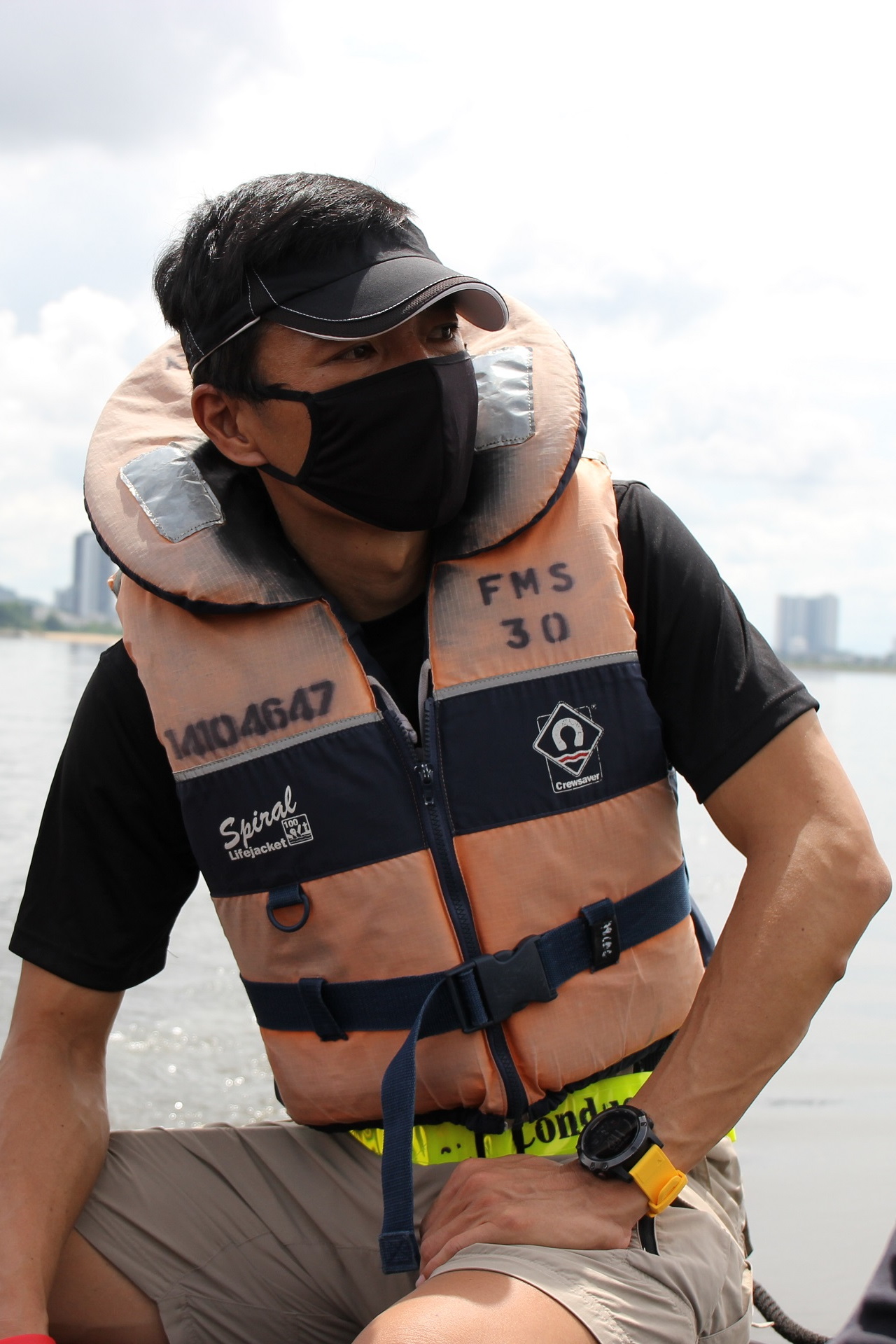
As an added safety measure, the DLC trainees have been split into two smaller groups during training. More instructors have been deployed to take charge of the groups, to ensure that training objectives are met within the allocated training periods, explained instructor 2nd Warrant Officer Thomas Yeow, 40.
Said the Senior Platoon Warrant Officer at Frogman School: "This plan allows us to fulfil the training requirements despite the restrictions of the safety measures…and so training standards have definitely not been compromised during this (Circuit Breaker) period."
Giving back to the community
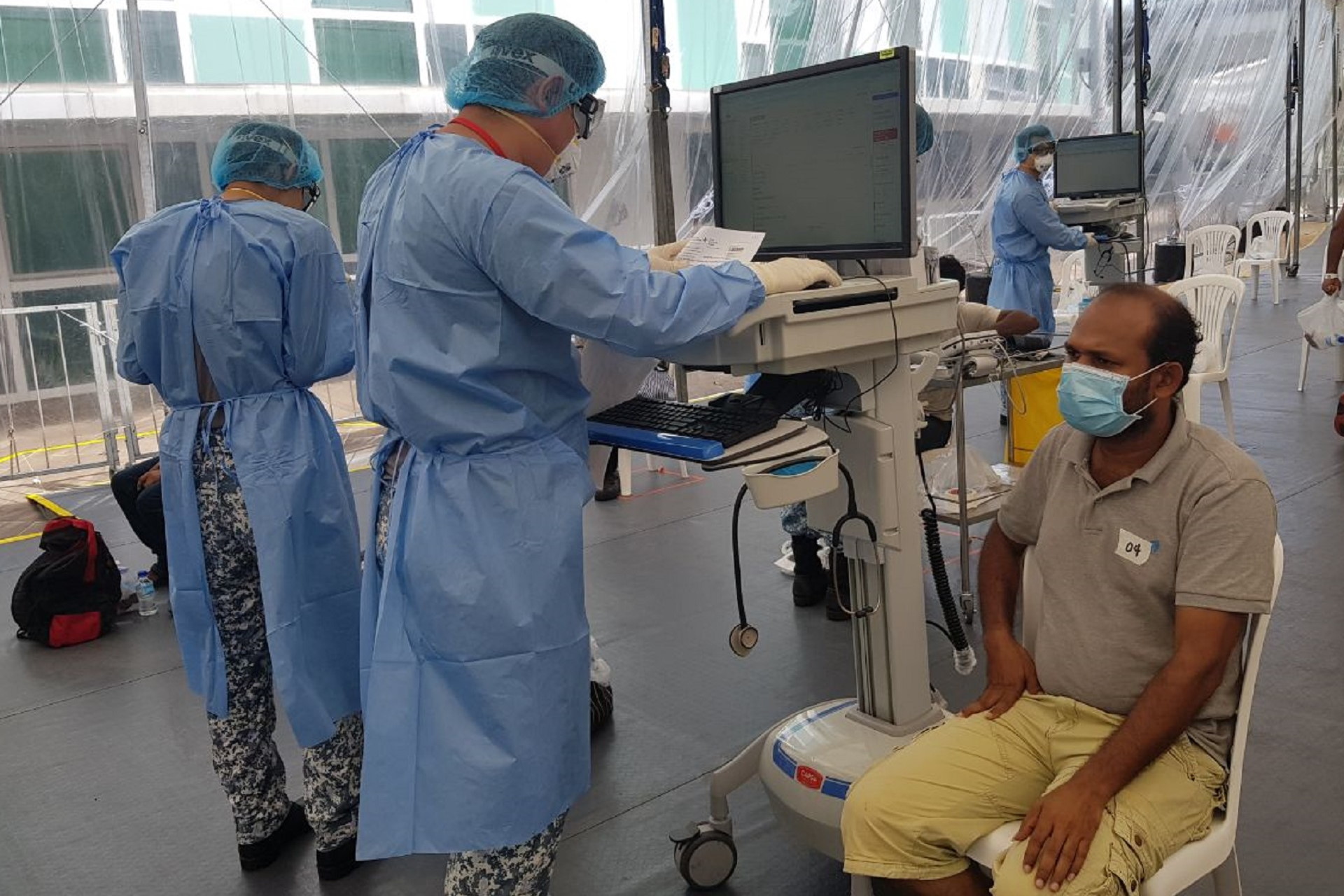
The RSN's efforts in fighting COVID-19 extend beyond their usual places of duty. Besides continuing to provide medical care for RSN servicemen, Navy Medical Services personnel have reached out to the community to help with temperature-taking and health screening at hospitals and Community Care Facilities (CCFs), conducting swab tests for affected foreign workers in the dormitories, and providing primary healthcare at CCFs.
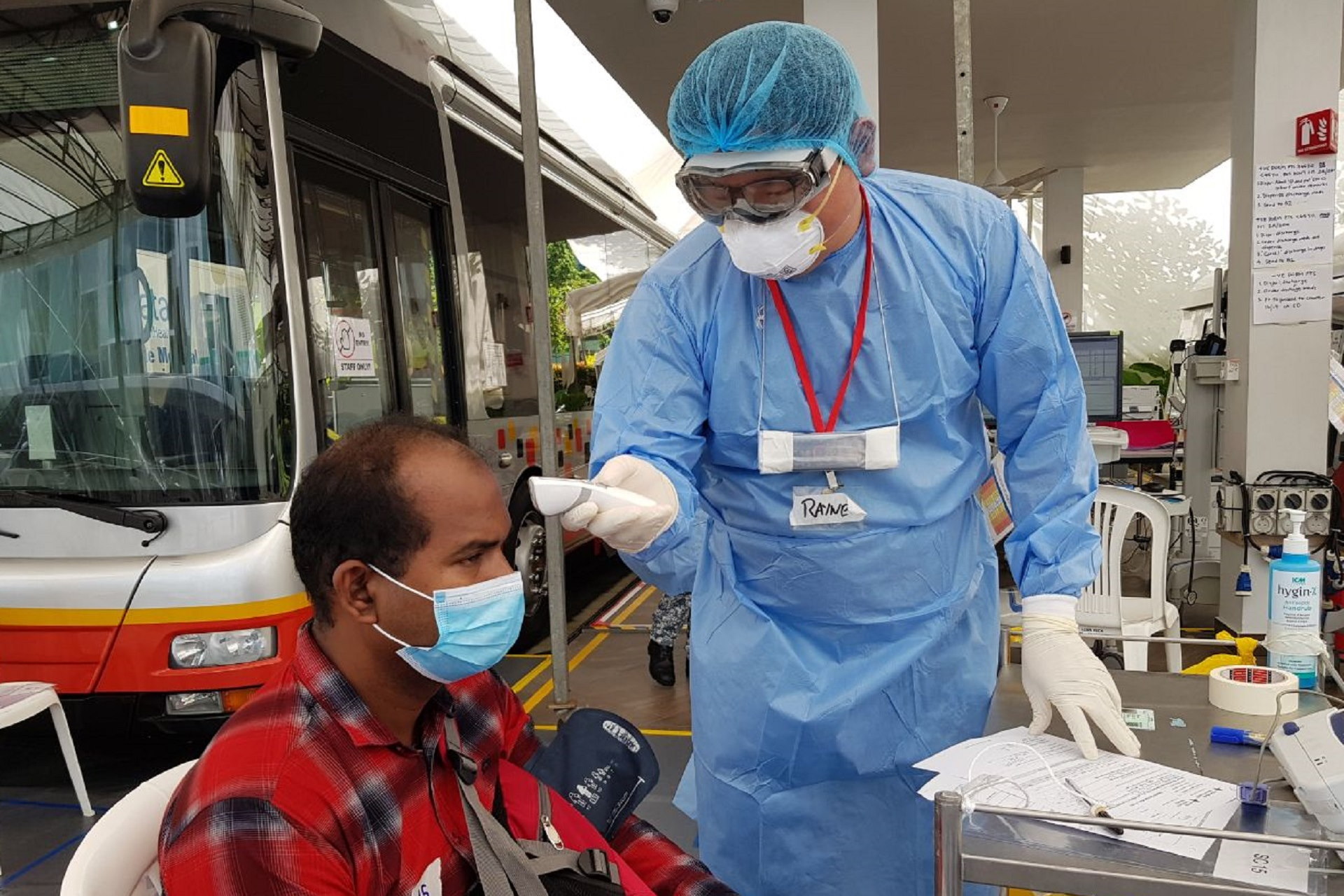
Military Medical Expert ME2 Rayner Tan, 36, (right) has been working at a hospital screening centre since 18 Apr, recording medical information of incoming patients.
Sometimes, his responsibilities go beyond providing medical support. He recalled an incident where a foreign worker had expressed concern for his dorm-mate, who had not been tested for COVID-19 and was afraid to see a doctor.
"I brought him to our medical officer, who provided him with solutions and advice (for his dorm-mate) before sending him back to his dorm. He looked visibly relieved after that. This incident reminded me that, being here at the frontline, I can make a difference to those who are vulnerable and need our help."
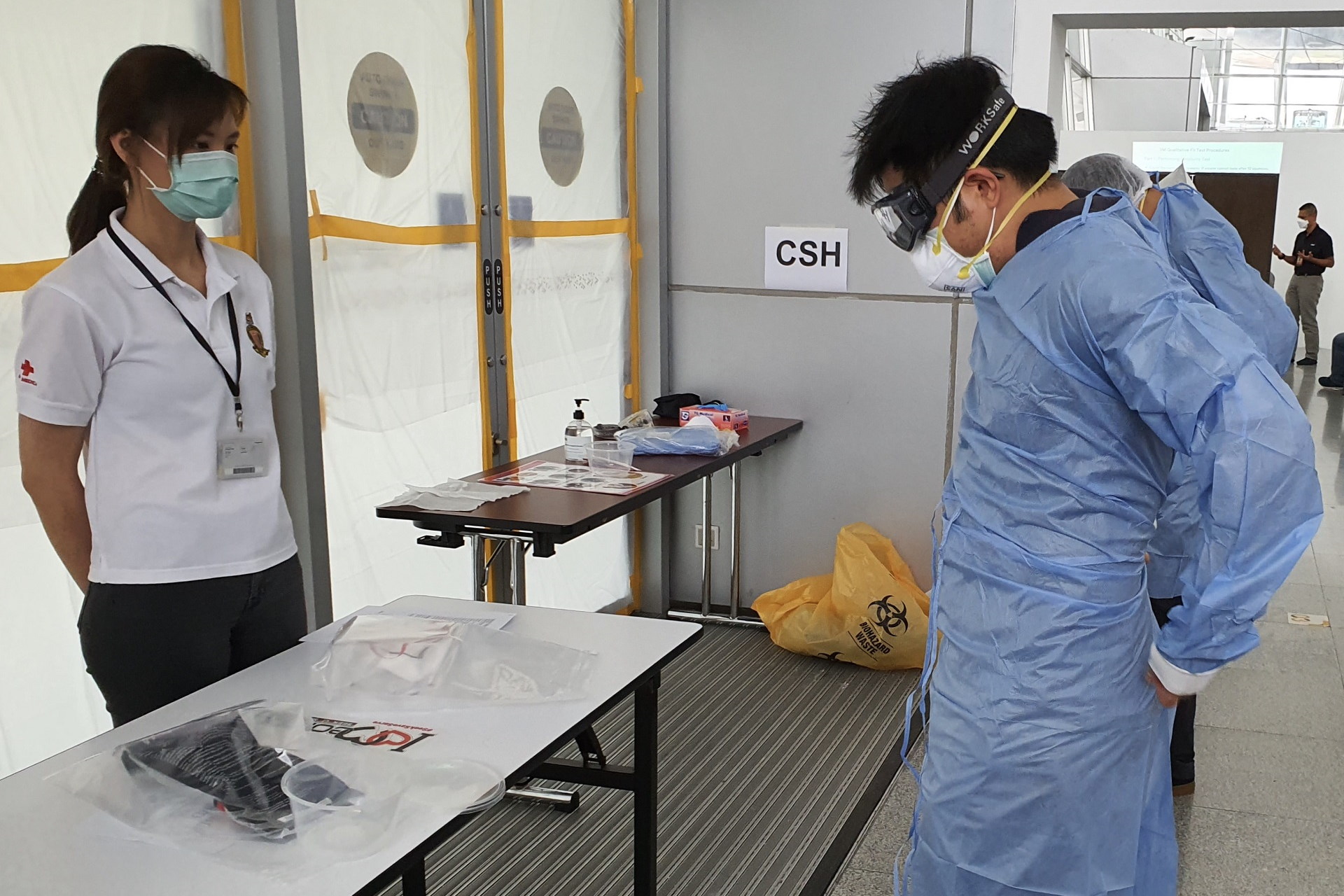
Nursing Officer Tan Ei Huan (left) supervising a serviceman who is putting on his PPE, to make sure that he is safely suited up.
She trains Operationally Ready National Servicemen who have been deployed to assist in the various CCFs, and also ensures that they are properly fitted with the right PPE.
Said the 27-year-old: "In the midst of a national crisis, I'm glad to support the frontline medical teams. It is truly my calling, not just as a public servant, but as a medically trained individual, to contribute my expertise and effort."
ALSO READ IN OPS & TRAINING
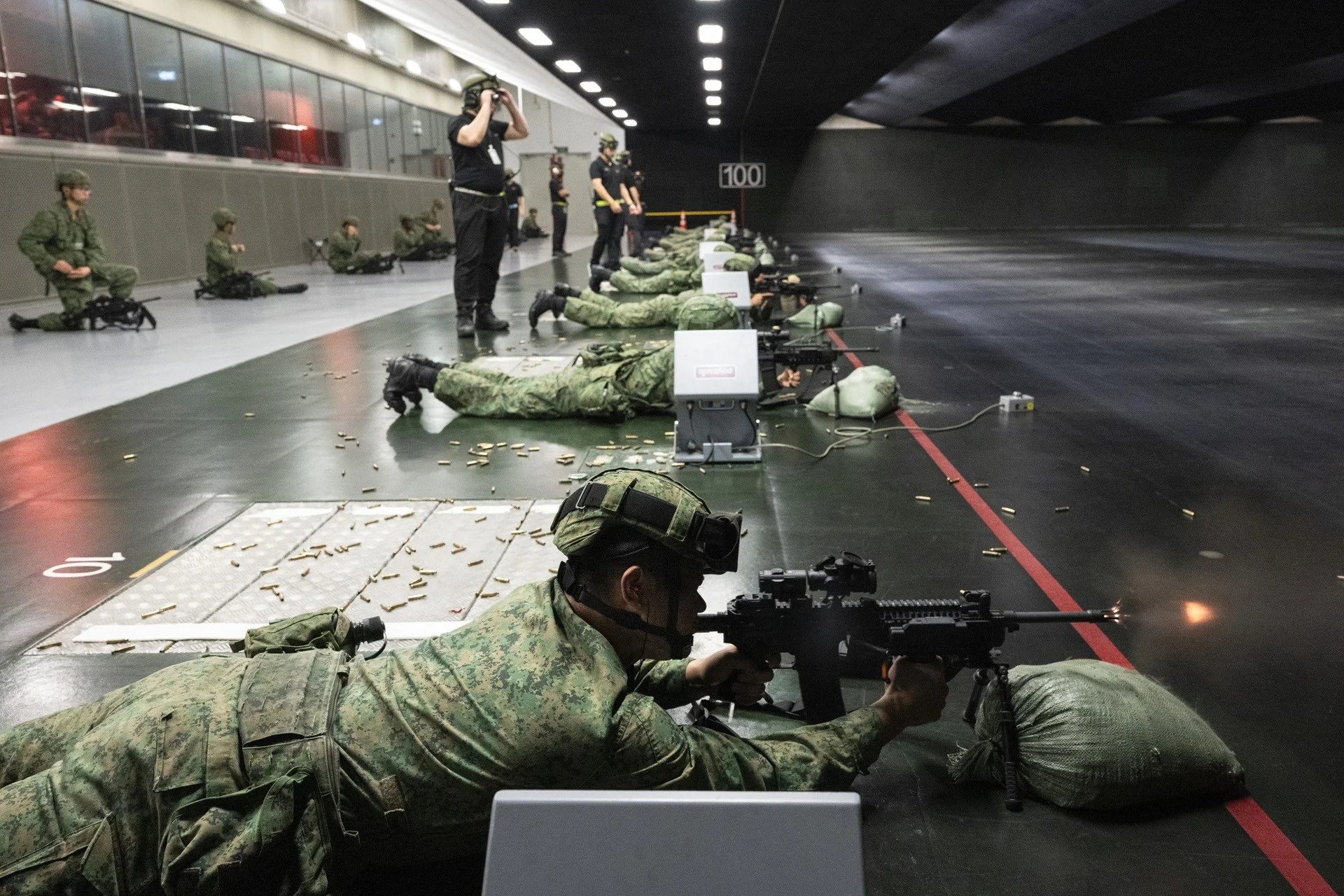
New firing range complex at Bedok Camp; Medical Classification System to be redesigned
27 Feb 2026
To train soldiers for a more complex environment, the SAF will build a new Multi-Mission Range Complex, as well as introduce opportunities for national servicemen to take on new roles, and more ways to volunteer.
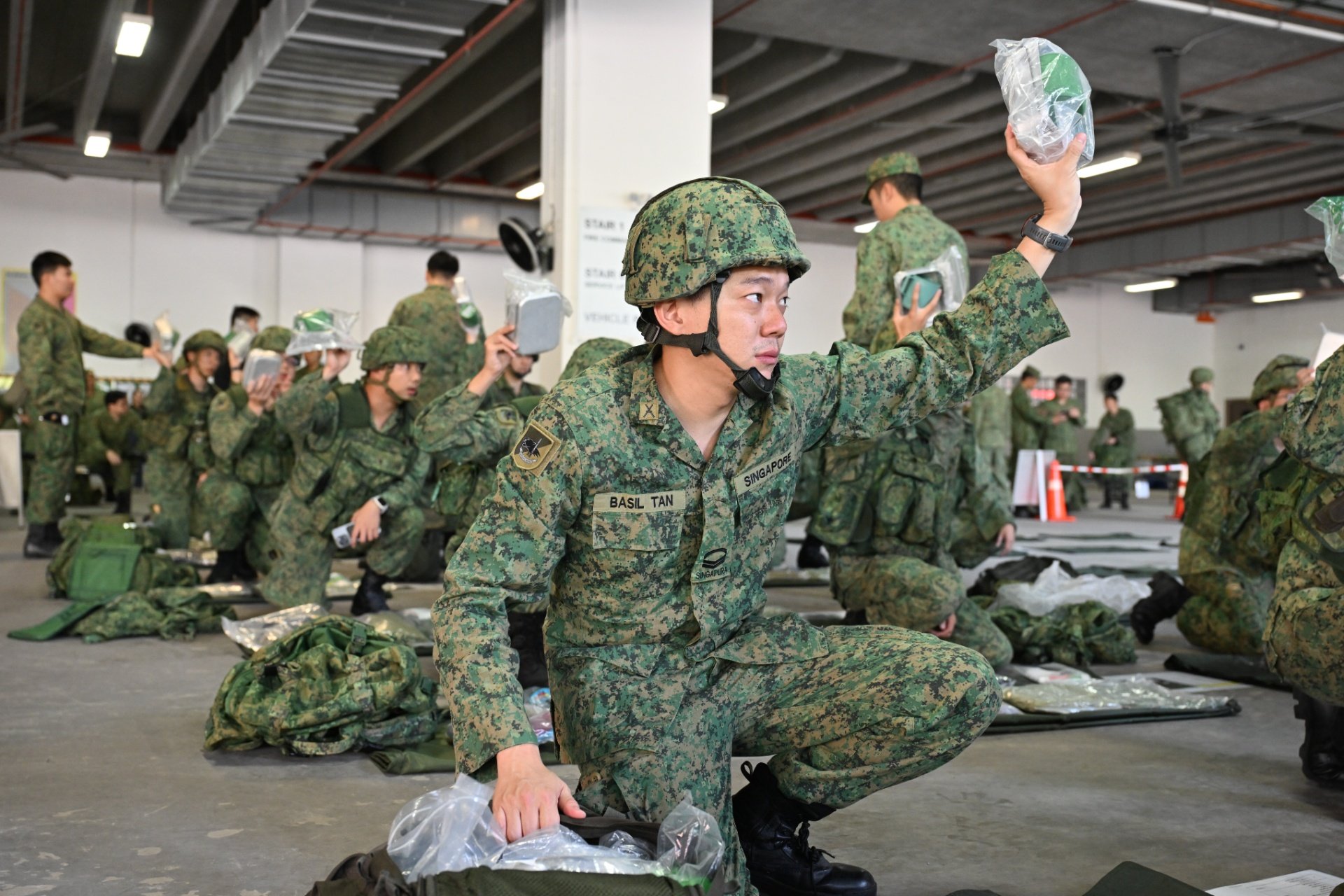
Reaffirming their commitment to defence
07 Feb 2026
Over 3,000 NSmen displayed their commitment to Singapore’s defence at a MOBEX in Selarang Camp.
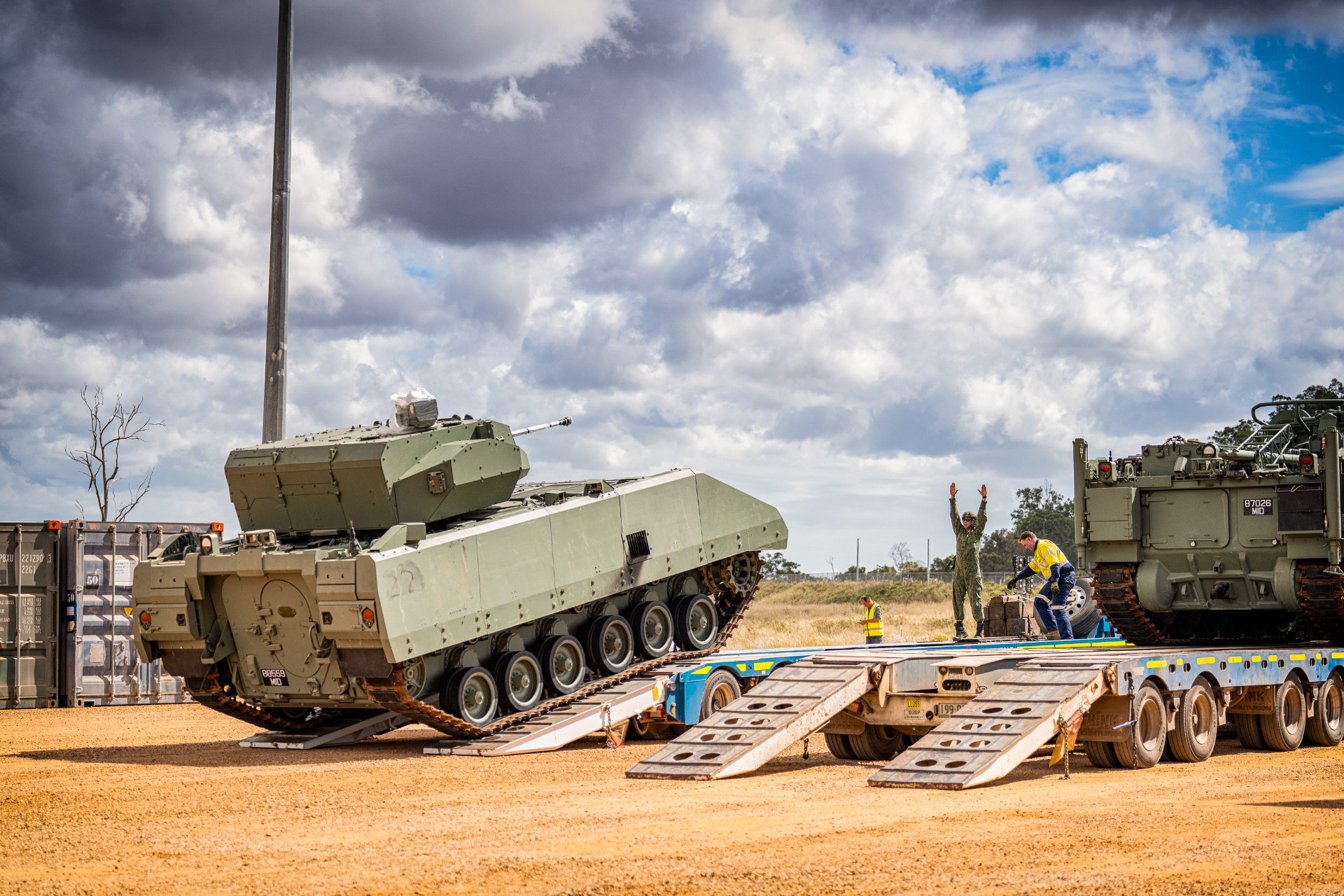
First in, last out at Ex Wallaby 2025
06 Nov 2025
Meet the teams who toil behind the scenes to enable the smooth conduct of the SAF’s biggest unilateral overseas exercise.


